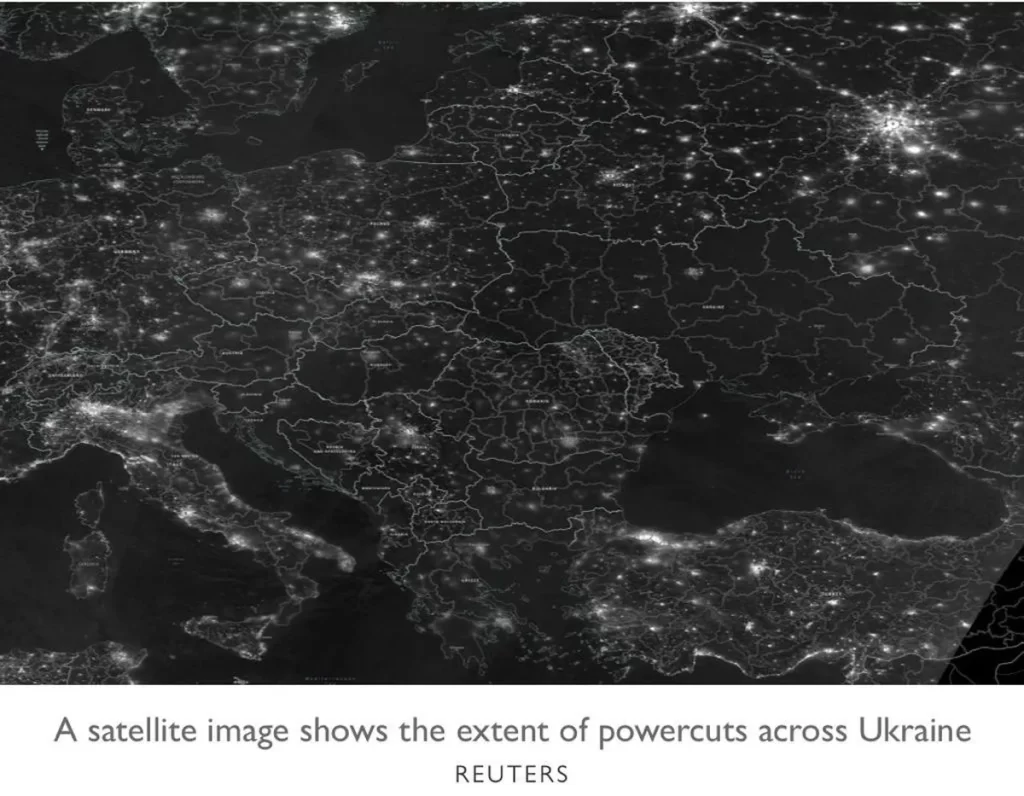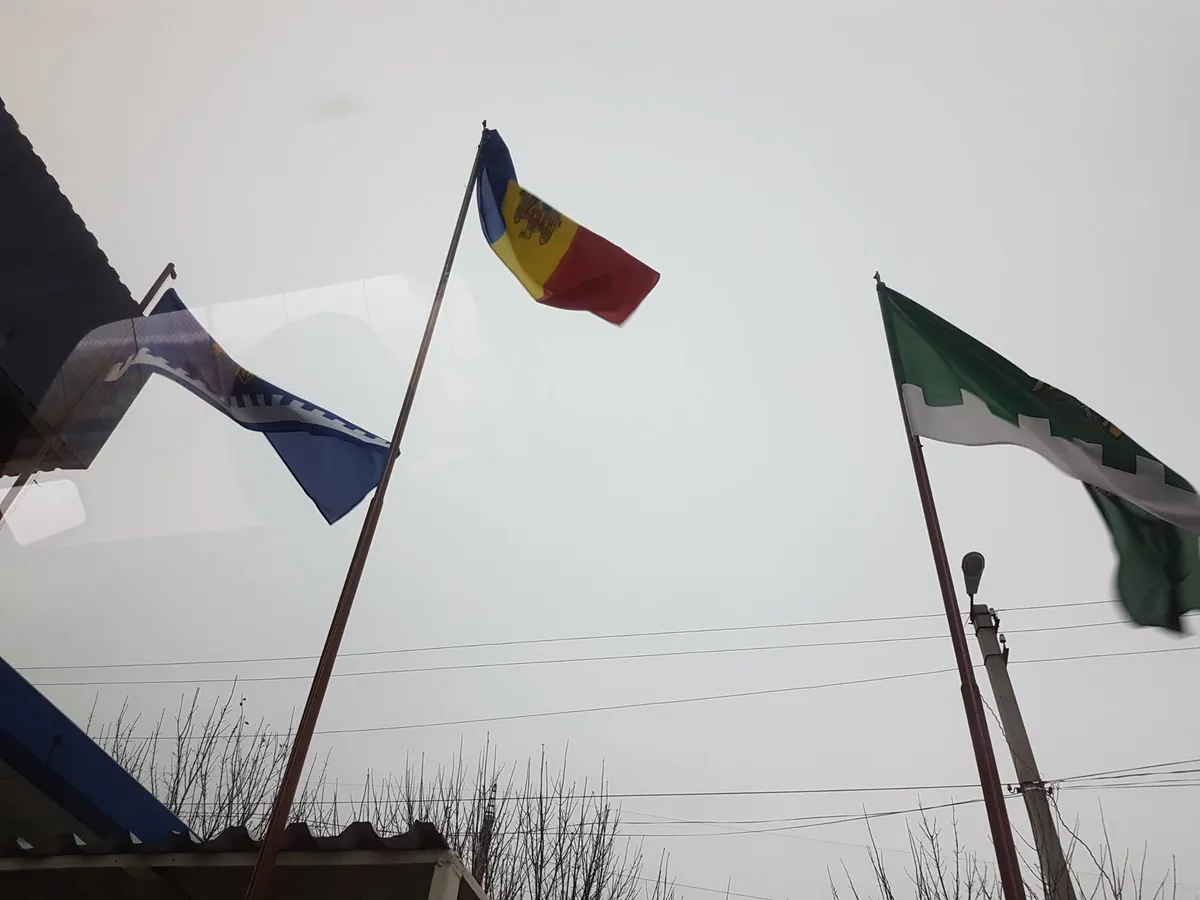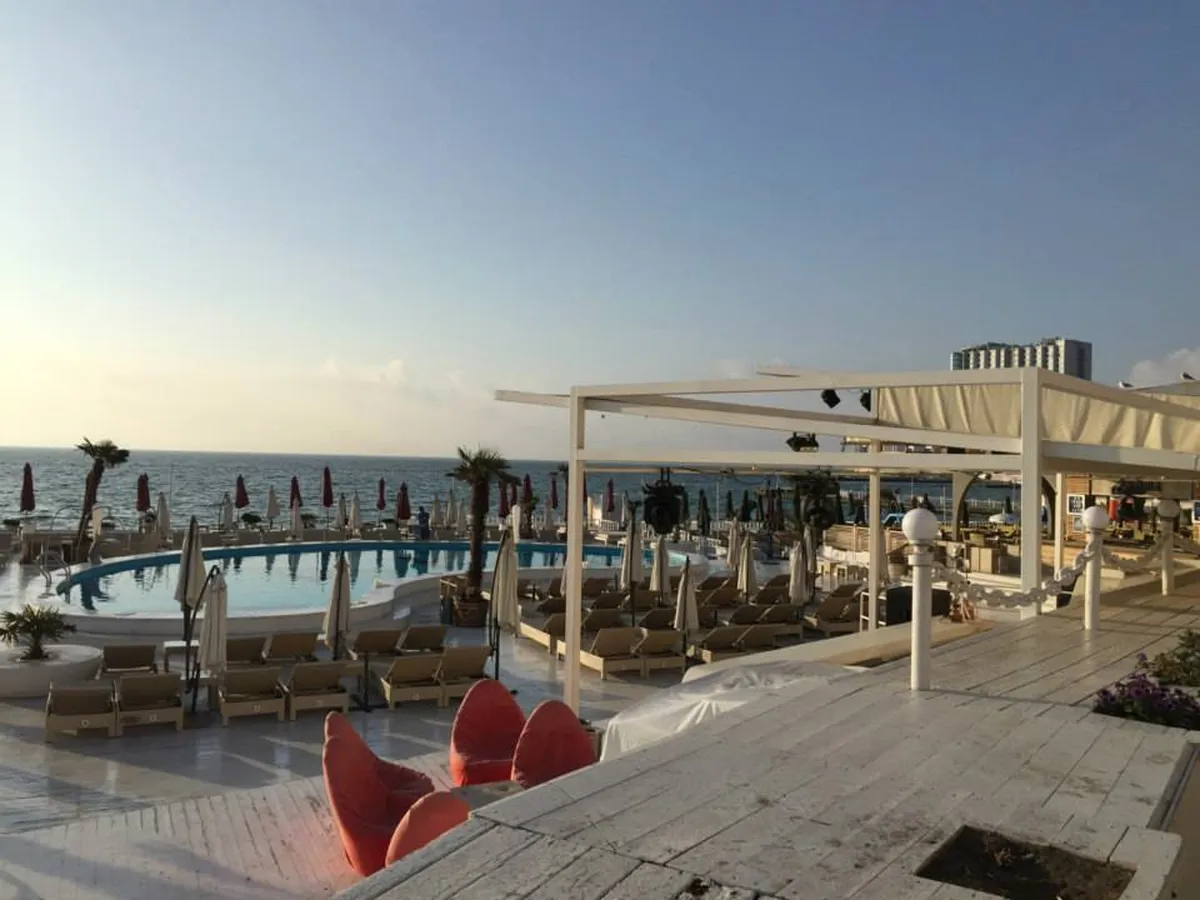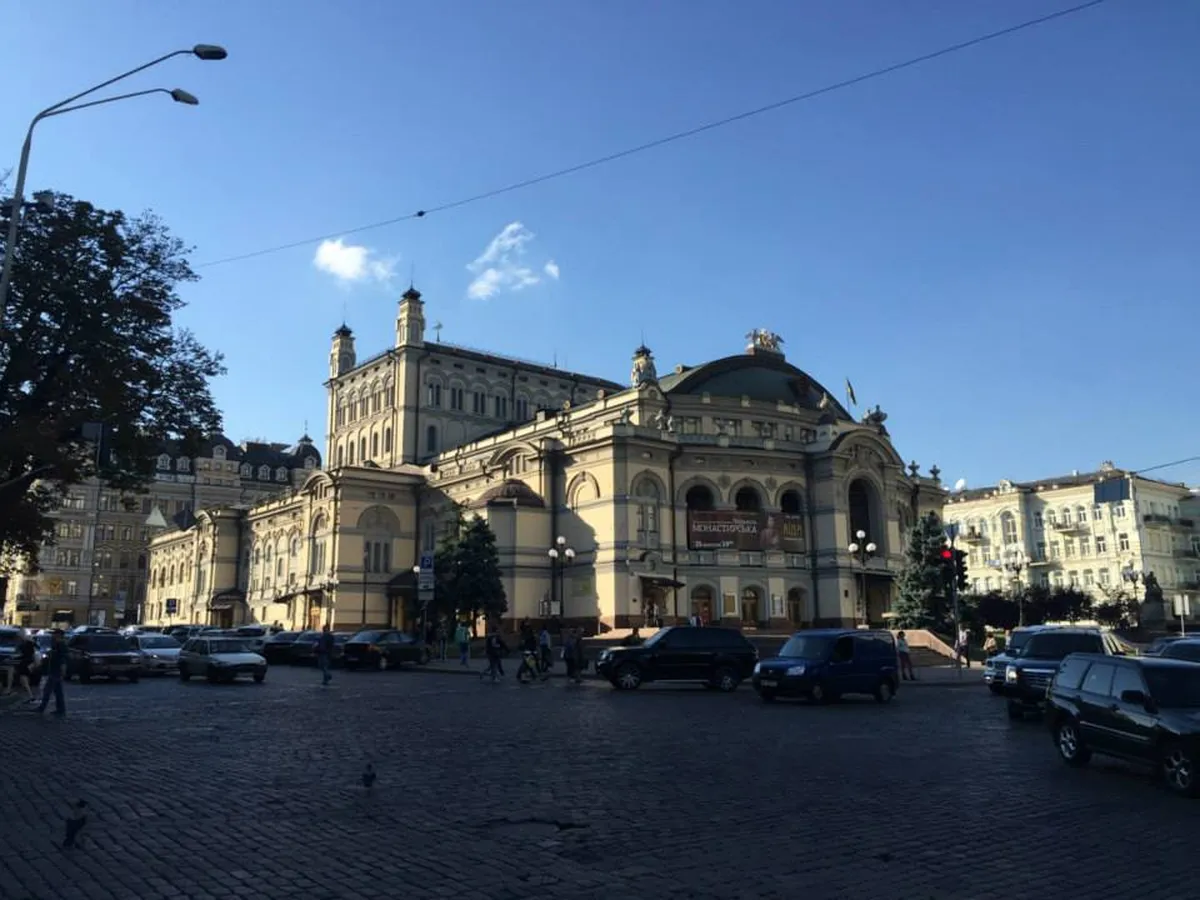C Украиной меня связывает очень многое. Во-первых, друзья и коллеги. Во-вторых, прекрасные воспоминания — я жил в Киеве с декабря 2001го по сентябрь 2005го. Работаю в Одессе с 1994го и в Киеве с 1999го. И люблю Украину. Lots of different people and things connect me with Ukraine. First, my colleagues and friends. Then, we lived in Kiev from December 2001 till September 2005. I have been working in Odessa since 1994 and in Kiev since 1999. And which is more, I love Ukraine.
10 июнь 2022 г. ·
Товарищи друзья по проведению моего ДР! Рад отчитаться: часть подаренных вами денежек в сумме 1400 евро, как мы с Вами и решили до начала меропритятия, пошла на помощь Украине.
Конретно — на поддержку украинских семей, проживающих в хостелах в пригородах Валенсии. Нашу с Вами помощь мы передали через Церковь Св. Спасения, что на Ав. Бурхассот.
Спасибо большое за участие!
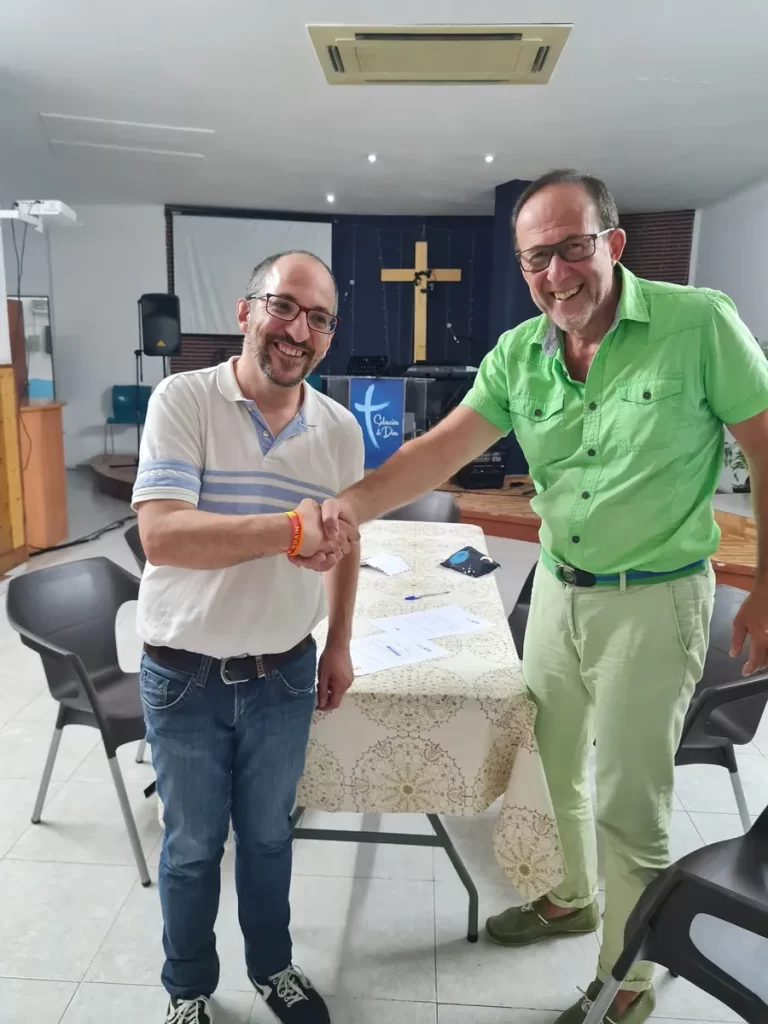
21 сентябрь 2022 г. ·
Украина – в центре Лондона!
Не успеваю, не успеваю описывать все важные события.
Но это – запомнилось.
Наши хорошие друзья, прежде всего, Julia Anna Simonchuk, организовали благотворительный концерт в сердце Лондона, в Ковент Гардене.
Место эпохальное – «Актерская церковь». St Paul’s Church.
На стенах – таблички с именами великих актеров.
Часть здесь похоронены, других тут просто помнят и чтут.
А с участниками концерта – было еще интересней.
Будущие маэстро.
Молодые пианисты и музыканты –
из Украины, Беларуси, Хорватии, Англии, России, Японии.
Собрались – и выразили свое решительное
«нет – войне».
И играли потрясающую музыку.
Классическую, Шопена, Бетховена, Сен-Санса.
И собственного сочинения, ведь многие учатся в Лондоне именно музыке.
Спасибо, Юля!
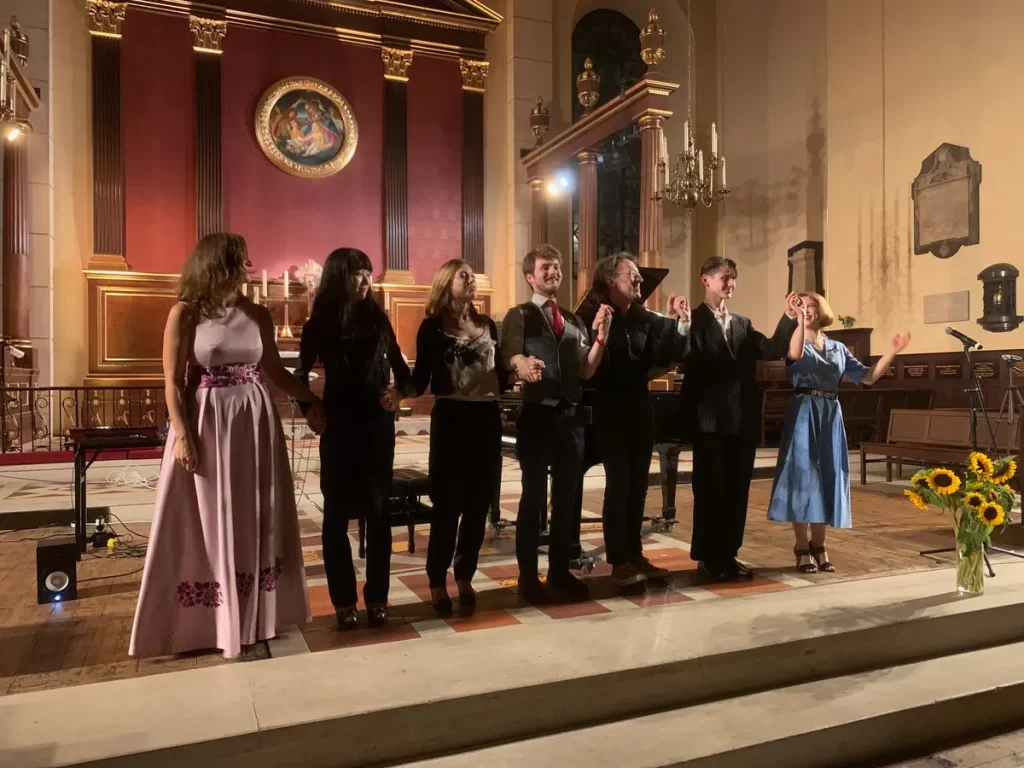
Церковь Актерская более похожа на концертный зал. Или музей — видите эту копию Ботичелли вместо алтаря? Только в Лондоне, наверно, это возможно. Здорово, что друзья наши — и организовали, и собрали средства на поддержку расположенной в Украине актерской организации — и порадовали нас музыкой. Тем более, такой разнообразной. Композиция эта, дамы из Японии — была одной из самых современных. Рвущих. Зовущих. Я и не видел, не слышал пока, как этот инструмент — терменвокс, кажется! играет в большом зале…
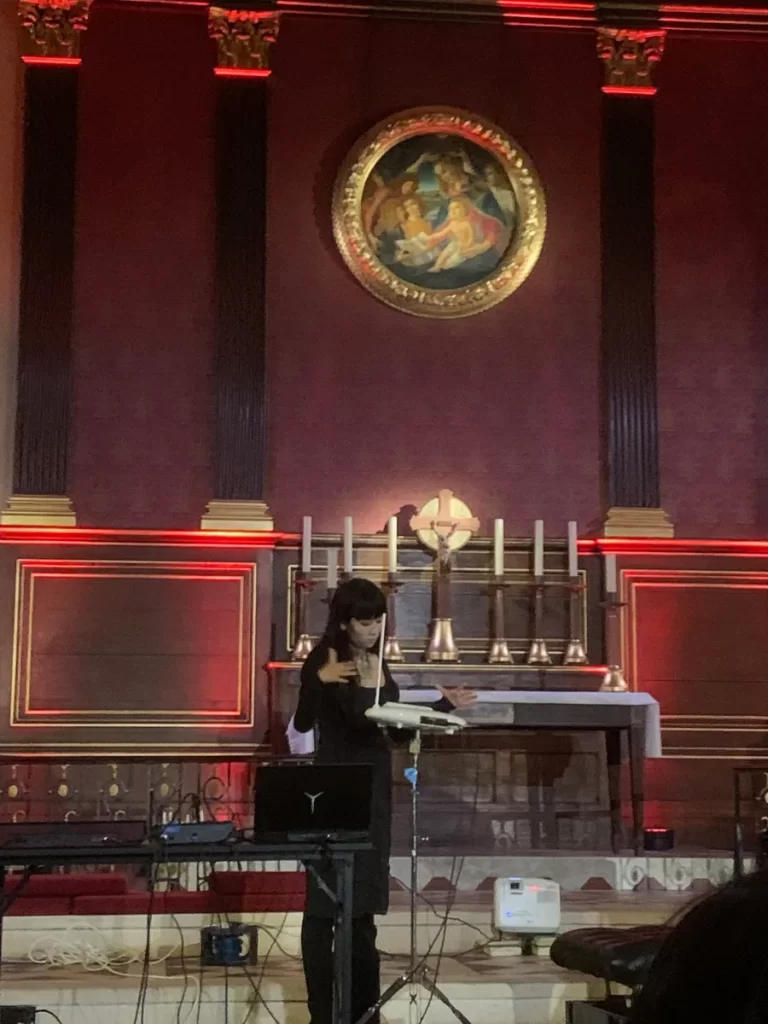
Cколько раз мы бывали в Ковент Гардене — а и не ведали, что прямо рядом — оазис спокойствия. Парк / садик при церкви — и сама церковь. Более похожая на Концертный Зал.
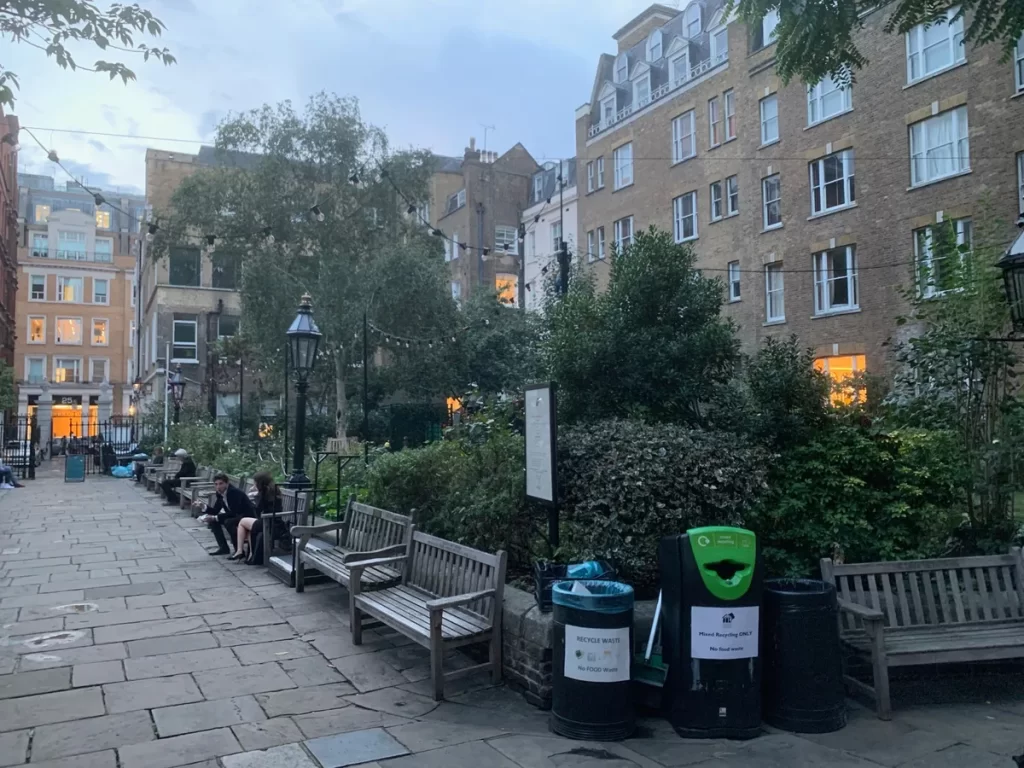
22 ноябрь 2022 г. ·
Владимир Петрович Гудко.
Прекрасный человек.
Не стало его.
22 11 2022…
30 01 1953
Совсем немного до 70…
Владимир Петрович был все это время в Херсоне… Увы.
Отличный специалист. Автор книг по буксировке и постановке на якорь. Это же, вроде бы, мелочи… а ведь столь нужные. Всем.
Пылкий. Вдумчивый. Спорящий. Заботящийся. Все-все знающий, побывавший повсюду.
Для страховых компаний всех стран – или самый страшный противник, или лучший союзник. Ведь все уловочки со всех сторон знал.
Наши глубокие соболезнования семье. Сергею, Владимиру-мл.
Всем, кто работал с Владимиром Петровичем.
Всем нам, немного осиротевшим.
Он же у нас решил тихо-тихо отметить свои 60… Приготовил такуууую уху.
Наш Лен ван дер Пут в 2015м настолько впечатлился общением, что написал целую книгу. Где главный персонаж – Капитан Боровик. Он же Владимир Петрович.
Да, крепкий. Дышащий здоровьем и юмором. Не верится. Он с нами.
Слово Лену, маленькая выдержка из книги 2015го.
Капитан Боровик все еще в настроении поговорить: он описывает страдания отца капитана корабля, ведь он сам был капитаном. «Я молю Бога, чтобы он подарил мне крылья, и я смог бы улететь к сыну на корабль. Я знаю, через что ему приходится пройти. Иногда я смотрю на систему погодной проводки (у него в офисе есть все необходимое оборудование), звоню Алексею и говорю: «Смотри, попробуй вот это … а как тебе этот маршрут/направление/маневр? … дай мне знать. Потом Алексей мне отвечает … сработало».
Боровик не хвастается, он просто изливает свое беспокойство за сына. Он знает, что Алексей всегда несет ответственность за свой корабль, никто больше не является ответственным, «только он и Бог». Вчера мы обсуждали одиночество командира. Капитан говорит пылко, он говорит о давлении на капитана корабля, и еще большем давлении – на отца капитана.
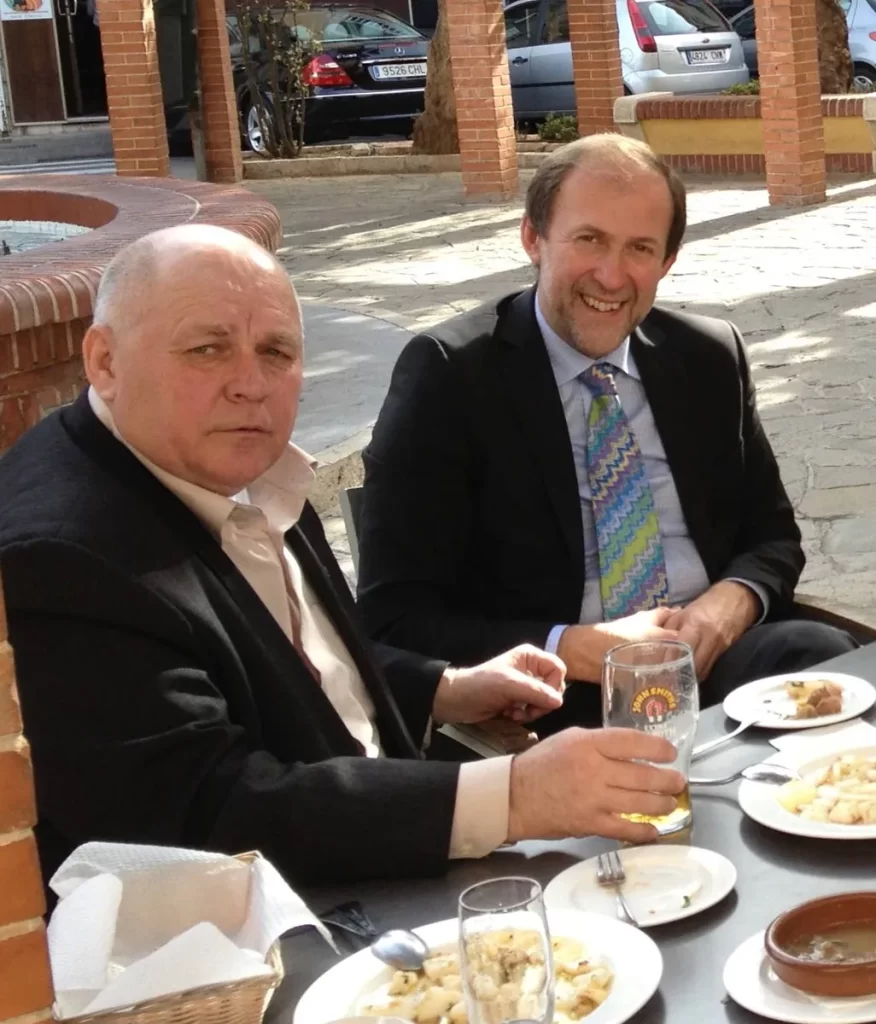
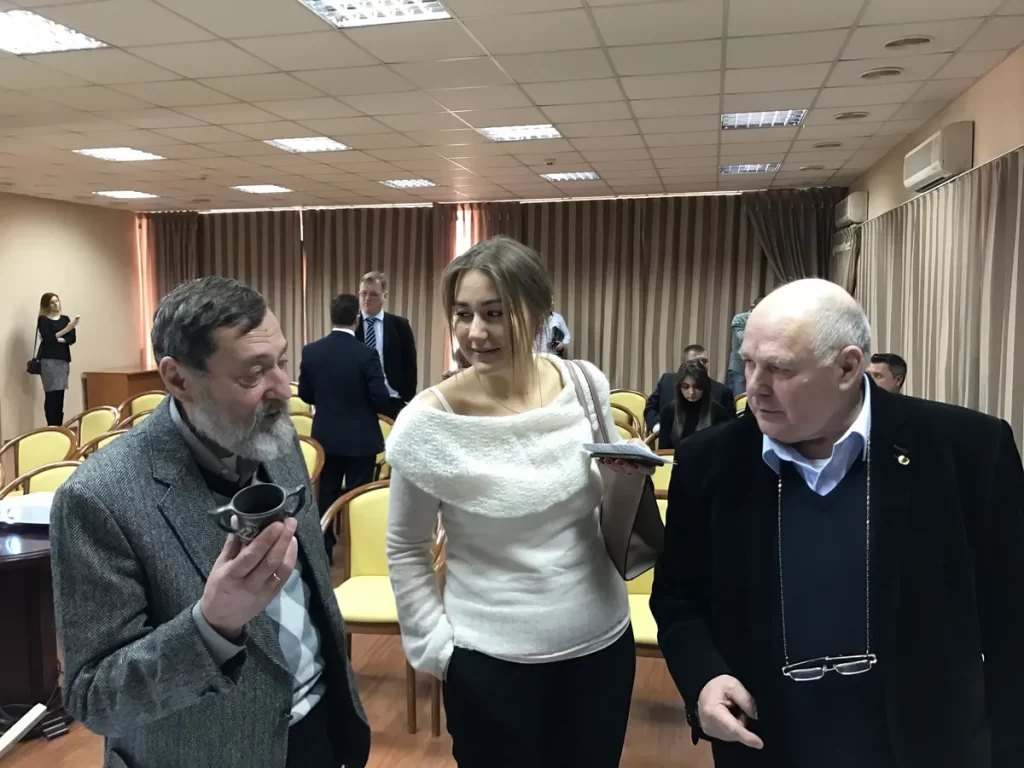
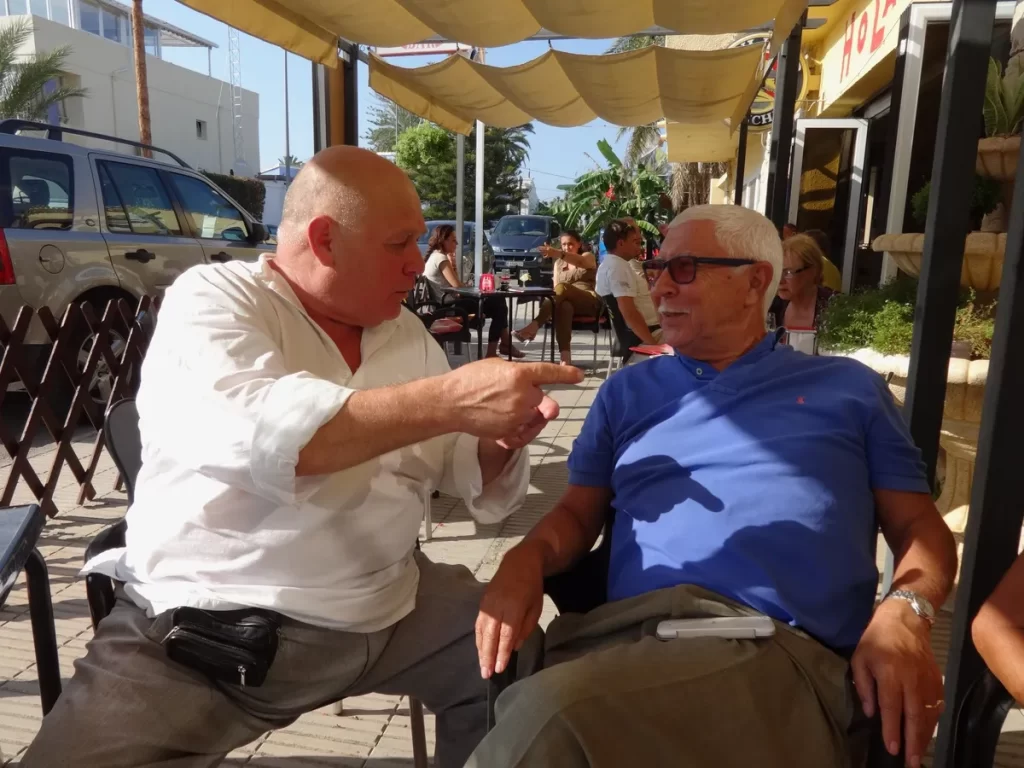
27 ноябрь 2022 г. ·
Геноцид, с моей точки зрения.
Российского руководства — против двух народов.
Украинского, понятно. И российского.
Посмотрите на темные и светлые районы.
Моя родная Москва сияет… как-то хищно.
На фоне относительной темноты в России.
И темноты абсолютной — в Украине.
Увы, не с Москвой мои мысли.
И правильно задается вопрос в сегодняшней Таймс —
а кто будет платить за эти варварские разрушения?
Не говоря уж о гибели людей.
Моих друзей, теперь, увы, можно и это сказать.
Платить будет Россия. Долго.
И тьма такая же — может накрыть всю ее.
А пока — надо поддерживать украинцев.
Им нелегко. Очень нелегко.
PS ОГНИ в ЕВРОПЕ.
Что я имею в виду, говоря про геноцид против Российского народа?
А посмотрите на распределение огоньков на Западе.
Это не один-два кластера в каждой стране.
Это – равномерное распределение.
А чем дальше на Восток – тем концентрированней.
Один-два огонька в каждом региончике – на фоне общей тьмы.
Подольск-Серпухов чуть не ярче Питера.
А потом – черная Владимирская. Все Нечерноземье.
Странный кластер на границе с Украиной – военного происхождения?
Темнота в Астраханье. В Пред-Кавказье.
«Все усилия на фронт»? А зачем? Чтобы потом платить десятилетиями?
— Очень хочется верить, что это не продукт фотошопа.
PPS Люблю географию, никуда не деться. Поэтому еще для меня удивительны — относительная темнота на Балканах. В Хорватии (?). Словении. Черногории. Впрочем, там же горы сплошные.
А вот яркая Сербия не удивляет. Пока.
КТО ЗАПЛАТИТ?
Россия. Но когда?
Who will pay to rebuild these war-torn cities?
The UN’s reparations fund for Ukraine will require Russia’s defeat
Dominic Lawson
Sunday November 27 2022, 12.01am GMT, The Sunday Times
Reparations. Now there’s a term that triggers — emotionally and politically. It certainly vexed the recent Cop27 meeting in Egypt, where the developing countries tried to establish a vast fund as “reparations” for the damage they claimed had been done to them as a result of CO2 emissions over centuries by European nations and the US.
It was much less extensively reported that in the same week the UN general assembly voted for a resolution on Ukraine, recommending the setting-up of a mechanism for payment of damages caused by Russia’s invasion. To be precise, 94 countries voted in favour of the resolution and 14 against, while 73 abstained, after Ukraine’s UN ambassador set out the extent of Russia’s destruction of his country’s infrastructure — as well as the atrocities such as murder, rape and forced deportations.
It is the latter horrors that have most engaged not just the media but also international lawyers, who have commissioned painstaking work on the ground to establish the evidence required for successful war crime prosecutions. That corresponds most with our concept of justice, notably expressed by the US president in April after the revelations of what happened in Bucha under Russian occupation: Joe Biden declared that Vladimir Putin should face trial for war crimes.
What are the chances of that ever happening? Or, indeed, of any of Putin’s principal accomplices being brought before such a tribunal? It would require them to be captured on the ground in Ukraine and taken into custody, since it is improbable that even a successor Russian regime to Putin’s would surrender individuals to such a court.
President Zelensky knows this well, which explains why in his statement to the G20 in Bali, in a section headlined “Justice”, he emphasised the issue of “an international compensation system for damages caused by the Russia war”, and why in an address to the congress of French mayors last week he set out the terrible industrial consequences of the invaders’ strategy: “The Russian military did not just rob people, taking away everything valuable … There are thousands of proofs that mining and destroying energy, medical, educational and other infrastructure in Ukraine is a deliberate Russian policy.”
There is a clear precedent for what Ukraine seeks from the UN, which was mentioned by its ambassador when he proposed the motion. The UN compensation commission was set up in 1991 to ensure restitution for Kuwait after Iraq’s invasion of its neighbour the previous year. There was great scepticism about its ever working, but, through a “take” on Iraq’s subsequent oil production, eventually $52 billion was paid out in compensation for damage (which included a tariff for loss of life to close relatives). The final payment, after 31 years of transfers, was made on February 9, 2022 — a fortnight before Putin decided to do to Ukraine what Saddam Hussein had done to Kuwait.
There are several differences in the present case. First, Ukraine would hardly want to spend over 30 years waiting for full restitution. Second, Russia, unlike Iraq, has not been defeated and forced into compliance with a scheme to rake off a proportion of its own oil revenues for reparations. Third — and most significant in the context of the recent resolution of the UN general assembly — Russia has the veto-wielding power of security council membership. It can block the implementation of such a scheme for as long as it wants.
On the other hand, there is a financial weapon in the hands of Ukraine’s allies, which overhangs all these discussions. Soon after the invasion, the West — to Moscow’s surprise — froze about $350 billion of the Russian state’s financial assets held in its banks. This was the bulk of the fund that Putin had set up to tide the country over during the sort of lesser sanctions he would have expected. And it so happens that the estimates of the damage done to date to Ukraine’s infrastructure tend to come in around the $350 billion mark.
There have been calls in the US legislature to move from freezing to seizing those assets: to fund the eventual reconstruction of Ukraine. Such an idea has been backed by the EU’s top foreign policy figure, Josep Borrell, who said that using the frozen Russian central bank assets for this purpose would be “full of logic”.
The truth is that the state of western governments’ balance sheets is hardly conducive — not least politically, given the existing demands on their taxpayers — to shelling out anything like such a sum. Whereas Russia is not just in a position of net credit rather than debt (give Putin his due); it alone is responsible for the colossal destruction.
But the governor of the US Federal Reserve, Janet Yellen, has pointed out that the consequences of confiscating Russia’s vast dollar holdings could be seismic. What conclusions would China, one of the world’s largest holders of US Treasury bonds, draw? Countries place their reserves in this form on the assumption they will not be expropriated, even if they do things the US deeply disapproves of. And what is sometimes called the Pax Americana is based to a great extent on the fact that the dollar is the world’s reserve currency.
Having spoken to someone closely involved in the legal work on Ukraine’s call for reparations, I have also become aware of how national courts come up against a clear barrier in international law that makes state assets, such as Russian ones, immune to confiscation. This makes it legally near impossible, at least if precedent holds, for a US court to confiscate the assets of the Russian central bank held in Washington (or a British court to confiscate similar assets held in London).
There may be a possibility of seizure based on declaring Russia a sponsor of terrorism, or a terrorist state. But if the US did that, it would only enable financial claims against Moscow’s dollar holdings by US nationals affected by said terrorism. Last week the EU parliament did indeed vote to declare Russia a state sponsor of terrorism; but the EU Commission itself has no power to designate a country, officially, as such. There is also scope for seizure based on enforcing judgments against Russia in the International Court of Justice and the European Court of Human Rights, but those will take years to conclude and still not be adequate in financial scale.
The conclusion must be that the West should augment its military and logistical aid to Ukraine, since if there is ever to be a just settlement between invader and victim, it requires the latter to be in the strongest possible negotiating position. Meanwhile, the UN general assembly’s vote should lead to its own establishment of a claims register, necessarily outside the security council, rendered useless as it has been by Russian veto.
Because there will be an accounting. Until then we should sit on those $350 billion of Russian reserves with the promise that they will be released only when Moscow agrees they should be used to rebuild a free Ukraine.
